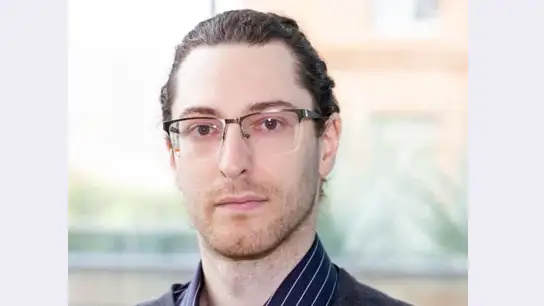Ross Thyer, an assistant professor in the Department of Chemical and Biomolecular Engineering at Rice University’s George R. School of Engineering and Computing, has been named the T.N. Law Assistant Professor of Chemical and Biomolecular Engineering, an endowed faculty position that became effective on July 1, 2025.
This endowed professorship was established in 1990 in the memory of Houston’s prominent oilman and philanthropist, Theodore “Ted” Newton Law, who also made major donations to several area organizations like The Houston Museum of Fine Arts, University of St. Thomas, and Rothko Chapel.
This professorship is conferred upon select assistant professors and recognizes their outstanding research and scholarship in biomolecular engineering. Thyer was conferred this title by Rice president, Reginald DesRoches, upon recommendation from Amy Dittmar, Howard R. Hughes Provost and Executive Vice President for Academic Affairs, Luay Nakhleh, William and Stephanie Sick Dean of the George R. Brown School of Engineering and Computing, and Sibani Lisa Biswal, chair of the Department of Chemical and Biomolecular Engineering and the William M. McCardell Professor in Chemical Engineering, and with approval of the Rice Board of Trustees.
“We congratulate Ross on this well-deserved recognition,” said Biswal. “In just a few years at Rice, he has established himself as a leader in sustainable biomanufacturing. His innovative approaches to synthetic biology are transforming how we think about producing important chemicals and materials. This endowed professorship will empower him to continue advancing solutions to some of our most pressing societal problems.”
A leader in synthetic biology research, Thyer and his research group tackles some of the biggest biotechnological challenges related to protein engineering and sustainable biomanufacturing. By leveraging high-throughput synthetic biology circuitry and expanded molecular and genetic codes in bacteria, his team has developed new molecular methods to biosynthesize and measure drugs, including levodopa (aka L-DOPA), an important pharmaceutical intermediate used to treat Parkinson’s disease.
He and his team have also developed a variety of technologies that have accelerated discovery in the field including novel bioinformatics tools to engineer enzymes and other industrial biocatalysts, genetic tools that enable industrial-scale bioproduction of non-model bacteria, and high-throughput selection techniques.
“It is an honor to receive this prestigious endowed professorship that commemorates the generosity of Ted Law to Rice,” Thyer said. “My mission to develop sustainable platforms for biomanufacturing aligns closely to the legacy of innovation in energy and sustainable technology pioneered by him and other industry leaders.”

